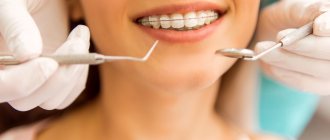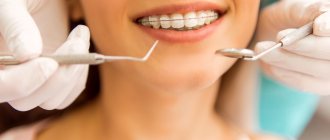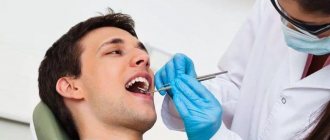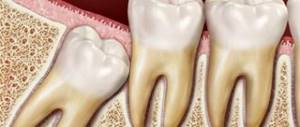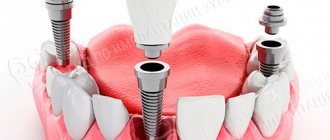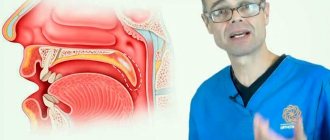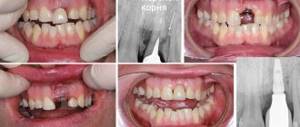Dentist is, of course, an interesting profession. But how long does it take to study to become a dentist? And is it worth studying to become a dentist, given that the competition is very high? Let's find out.
It's definitely worth studying to become a dentist. Despite the fact that many people experience stress before visiting the dentist, everyone understands the necessity of these visits. After all, when a tooth hurts, it is, to put it mildly, very unpleasant, and sometimes the acute pain is simply impossible to endure.
In such cases, the benefit of dentists is obvious. But, in addition, studying to become a dentist is not only honorable and prestigious, but also financially profitable. This is one of the highest paid medical specialties. Therefore, many choose dentistry as a profession. What do you need to do to study to become a dentist? How to get this worthy profession?
To become a dentist you need to graduate from a higher medical school. It's not that easy to do. Medical schools are among the most popular universities among applicants. The competition in them is always very high and the competition for admission is very strong. There are few medical universities in Russia, but the medical profession can be said to be elitist. Not everyone can become one. It is not only difficult to enter a university, but also to study there is not easy and for quite a long time, and work is fraught with its own difficulties and difficulties.
Who is it?
This is a doctor who deals with the correction of congenital or acquired pathologies of the jaws. He places braces, makes impressions for dentures, and then installs them. His competence includes the treatment of the following anomalies:
- curvature of the entire geometry of the dentition or individual teeth;
- unaesthetic bite;
- disproportionate development of the upper and lower jaws;
- unerupted teeth;
- asymmetrical face shape;
- tooth gap;
- speech, chewing or breathing disorders resulting from jaw pathology;
- restoration of lost teeth;
- displacement of the dentition.
The specialist’s responsibilities also include preventing the occurrence of such anomalies and studying the reasons that cause them. The orthodontist works to improve the dentition in every possible way.
The profession requires combining the skills of a dental technician with the knowledge of a dentist. But he does not treat carious cavities or fill them. To correct teeth, an orthodontist mainly uses hardware and surgical methods.
Important! Dental anomalies can be corrected at any age. But only those who see a doctor on time with their problem can count on the most positive results. This applies to both children and adults.
In the video about who an orthodontist is, what he does and why it is needed:
Who is a dentist?
A dentist is first and foremost a doctor, a specialist in the field of problems of the oral cavity and maxillofacial area.
He checks the condition of teeth and treats patients, advises on issues of implantation, growth, changing teeth, and gives recommendations on further oral care.
Features of the profession
The main tasks of an orthodontist include:
- identifying the reasons that contributed to the formation and development of pathology;
- study of the degree of complexity of the patient’s problem;
- selection of an adequate and effective course of treatment, taking into account the individual characteristics of the client and diagnosis;
- carrying out preventive measures to prevent recurrence of abnormal changes;
- records management;
- performing dental procedures - tooth extraction or pain relief, if required by a specific situation;
- providing medical assistance if necessary.
The specialist is also obliged to familiarize patients with the rules of oral hygiene . The scope of his employment is significantly narrower than that of dental therapists. The result of the orthodontist’s work is considered to be a flawless and even smile.
Attention! Within the profession there is a division into pediatric and adult orthodontist. Treatment methods will be different for each age group.
The doctor’s choice of specific actions is directly related to the nature of the client’s pathology. At the first appointment, the specialist will not install braces or corrective plates ; this requires special preparation.
The first visit to the orthodontist involves a thorough visual examination, preliminary diagnosis and consultation on recommended methods of getting rid of pathology. After making a diagnosis, he prescribes treatment and carries out procedures to correct the dentition. Finally, the achieved results are recorded using special structures - a tray or thin wire.
Dentists' specializations
Like many other specialties, dentistry has a number of specializations, which can be trained in universities in our country.
Dentists are different
In simple terms, a dentist is a general term that refers to a doctor who deals with diseases of the oral cavity.
Dentistry specializations are narrow-profile activities associated with a certain age of patients, characteristics of diseases, and so on.
All this is worth talking about in more detail.
Therapeutic activities in the field of dentistry are familiar to most of us.
After all, it is the therapist who examines our teeth, detects caries, tartar, and gives advice related to the prevention of certain diseases through proper hygiene.
We go to the surgeon in case of dental injuries, for example, received at a boxing competition. This person also deals with the treatment of wounds in the mouth and neck, standard procedures for tooth extraction and prosthetics.
An oral and maxillofacial surgeon is called upon to help us solve more complex issues related to our health. Procedures performed by a regular surgeon are performed under local anesthesia. For the work of a maxillofacial surgeon, general anesthesia is required.
We meet a pediatric dentist quite early, at approximately six months of age. After all, it is at this moment that most children begin to grow their first milk teeth. We will continue to see the same specialist until adolescence.
Pros and cons of the profession
Among its advantages are the following:
- decent wages;
- increased demand;
- the possibility of continuous professional development and remuneration;
- prestige;
- low competition.
The disadvantages of this specialty include:
- the need for long-term training - more than 5 years and its high cost;
- frequent stress, especially during dental treatment in children;
- increased responsibility for your work.
The complexity of the profession also lies in the fact that the doctor is obliged not only to study the clinical picture well, but also to select the optimal treatment methods that are guaranteed to help correct the identified defects in the patient.
Brief description: who is an orthodontist?
Today, a beautiful smile, straight teeth and correct bite are an important component of a person’s image and appearance. And even if we remove the purely aesthetic factor from consideration, many others remain: for example, due to the incorrect structure of the jaw, a person’s diction may be impaired, it can contribute to the development of diseases of the teeth and gums, and even cause curvature in the cervical and subsequent parts of the spine. Orthodontics is a subsection of dentistry that deals with precisely such problems.
Important personal qualities
The most important thing here is the psychological factor. Dental correction is a long process. It takes from 6 months to 2-3 years. And most often you have to deal with children. Therefore, you need to be able to establish trusting contact with them. You can’t do this without the ability to empathize and communicate.
Stress resistance and the ability to smooth out conflict situations are also valued. And in order for the treatment results to always be positive, you need to take your work responsibly. Hard work also requires goodwill, balance and tact.
And no less significant will be the desire for self-development. A specialist must regularly improve his competence and skill level , and understand new treatment methods.
Where to study and how many years does it take to become such a doctor?
To master this profession, you must undergo full training at the Faculty of Dentistry at a university. Then get a narrow specialization in residency. In general, it takes up to 9 years. To successfully enter a medical university, you need to have high Unified State Exam scores in:
- biology;
- mathematics;
- chemistry;
- and physics.
Or you will have to take a test. Sometimes a foreign language exam is added to this list.
It is better to check the list of subjects directly with the educational institution to which you are applying for admission.
The best institutions that train dentists include:
- Moscow State University named after Lomonosov;
- Siberian State Medical University;
- RUDN;
- First Moscow State Medical University named after. Sechenov;
- KubMSU.
But studying at a university is not enough. A true specialist is constantly developing, mastering new techniques, attending thematic conferences and seminars. Only continuous work on himself makes him a professional in his field.
How long does it take to study to become an orthodontist?
As we noted earlier, an orthodontist deals with the correction of “natural” deformations of the dentofacial apparatus. In most cases, children turn to an orthodontist, because many dental diseases manifest themselves quite early.
It is orthodontists who correct facial asymmetry, change the shape of teeth, and remove excess teeth. In the office of this specialist, you can get braces, veneers, and lumineers.
In order to master this profession, you must pass all the same exams that we indicated earlier. Upon entering the university, you need to choose the training profile of orthodontists.
Perhaps, as such, narrow-profile training will only take place in the last years of study, and at the initial stage you will receive the basic knowledge necessary for dental practice.
After graduating from university (5 years), you will need to go through an internship and residency (4 years), after which you can begin independent medical work.
Concluding our conversation, the following should be noted. Despite the fact that the training of dentists takes such a long period of time, future doctors gain real knowledge through practical means during internship and residency.
By the way, it is during the period of residency that many young specialists find decent jobs.
You should not give up such a profession for fear of the above-mentioned shortcomings, because the undeniable advantage of a dentist is his widespread need and good salary.
In this video you will learn about the dental profession first hand:
Specialist salary
Obtaining an education requires large investments, but after successfully completing all its stages, a specialist will easily achieve a high level of income.
The salary depends on the place of work . In government institutions this is a flat rate, and in private clinics it is about 25-35% of the cost of services provided to the patient. In the second case, in order to earn decent money, you need to have more clients and an excellent reputation with positive reviews.
Specialization also affects your salary. A pediatric orthodontist is paid from 35 thousand rubles. and more, and for an adult – from 68 thousand rubles.
Reference . The highest demand for orthodontic services is in the Moscow Region, Krasnodar Territory and St. Petersburg. Beginning specialists are paid from 24 thousand rubles, and experienced specialists – from 50 thousand rubles. At the same time, the average salary in the Russian Federation is 90-100 thousand rubles, and if we are talking about a private clinic, the amount increases to 300-400 rubles.
How much do dentists earn?
The average salary in public dentistry is 25 - 50 thousand rubles per month , bonuses and subsidies are paid, depending on the length of service and qualifications of the doctor.
Commercial clients provide the opportunity to earn from 40 to 150 thousand rubles. These figures vary depending on the region.
Career
Orthodontist is a profession in demand . Vacancies in this specialty are open in the following places:
- state clinics;
- medical centers;
- private aesthetic medicine clinics.
An experienced doctor can open his own office to provide dental services. And if you have no desire to contact patients, there is always the opportunity to get a job at an enterprise that sells or produces medications or orthopedic structures.
The level of skill and quality of specialist services provided are periodically assessed by qualification categories. They are awarded after defending a research paper. The commission evaluates not only the doctor’s skills, but also the relevance of his knowledge and skills.
There are several types of categories assigned to an orthodontist:
- the second – if you have at least 3 years of experience;
- first – given with work experience of over 7 years;
- Higher - requires at least 10 years of practice.
A doctor has the right not to undergo certification, but this will interfere with career and professional growth.
Having a qualification category provides the following advantages:
- the opportunity to occupy high positions in medical organizations;
- the right to an increase to the basic salary;
- increasing the level of trust on the part of patients;
- status in the professional environment.
You can achieve even greater acceptance by speaking at medical conferences and publishing expert articles.
And if you want to build a scientific career, you will first have to complete graduate school, and then write and defend a dissertation. Then the title of Candidate of Medical Sciences will be awarded.
To become an orthodontist, you need not only to have certain personal qualities and undergo expensive training at a university, but also to constantly develop professionally. The reward for this will be decent wages and gratitude from clients.
What items must be taken to the dentist?
Dentistry is considered an in-demand industry in medicine and, despite its apparent simplicity, not everything is so simple with it.
The dentist must be able to:
- Contact with people and not feel disgust or dislike at the sight of blood.
- It is easy to operate medical devices and have good vision.
This is a responsible profession that involves providing assistance to people in need. Learning is unlikely to seem easy, because medicine always requires deep knowledge. You will have to learn the anatomy of the structure and learn how to operate the basic dentist tools.
But this is after entering a higher educational institution. There are not so few people who want to become a dentist, so competition for admission to medical universities is always high. The following candidates are given priority:
- students who passed specialized subjects with the highest score,
- winners and participants of Olympiads in specialized subjects (can be held outside the competition).
The admissions committee will require deep knowledge in a number of subjects from the applicant. While within the walls of their “native school”, students should “pull up” their knowledge in the following disciplines:
| Chemistry: | It is considered the main subject that you need to know “excellently” and demonstrate your knowledge when passing the Unified State Exam. |
| Biology: | Another specialized subject, the knowledge of which must be at a high level, otherwise it is unlikely that you will be able to enter a medical university. |
| Russian language: | It is not considered a core subject, but upon admission to such an educational institution, you will have to take exams in this discipline. |
| Mathematics: | Another non-core subject that is unlikely to be useful to a dentist in everyday work, but in order to receive a certificate, you will have to pass an exam in mathematics. |
For any applicant planning to connect his life with medicine, it is necessary to have a deep knowledge of chemistry and biology. For everyone, including dentists, these subjects are considered core subjects, that is, they are necessary for obtaining, mastering a profession and entering a university.
If initially the student does not have a high understanding of these disciplines, then even when entering the desired profession, serious problems with academic performance may arise during the learning process. Is there any point in wasting time and effort?

